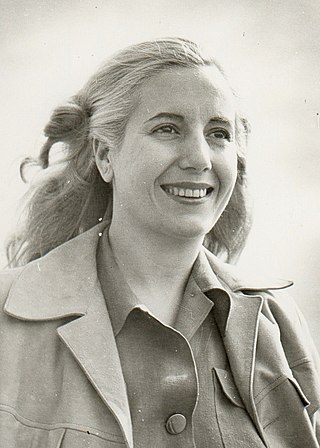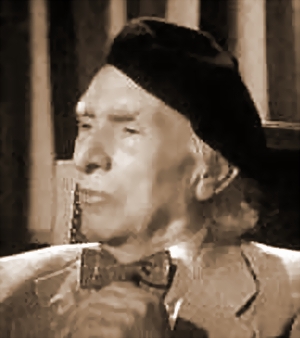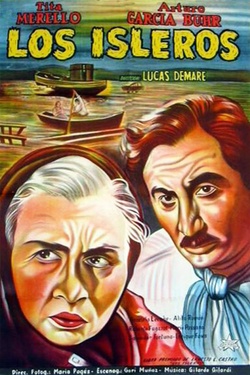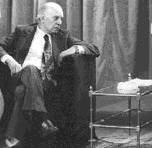A list of films produced in Argentina in 1951:

María Eva Duarte de Perón, better known as just Eva Perón or by the nickname Evita, was an Argentine politician, activist, actress, and philanthropist who served as First Lady of Argentina from June 1946 until her death in July 1952, as the wife of Argentine President Juan Perón. She was born in poverty in the rural village of Los Toldos, in the Pampas, as the youngest of five children. In 1934, at the age of 15, she moved to the nation's capital of Buenos Aires to pursue a career as a stage, radio, and film actress. She married Perón in 1945, when he was still an army colonel, and was propelled onto the political stage when he became President in 1946. She became a central figure of Peronism and Argentine culture because of the Eva Perón Foundation, a charitable organization perceived by many Argentinians as highly impactful.

John Alton, born Johann Jacob Altmann, in Sopron, Kingdom of Hungary, was an American cinematographer of Hungarian-German origin. Alton photographed some of the most famous films noir of the classic period and won an Academy Award for the cinematography of An American in Paris (1951), becoming the first Hungarian-born person to do so in the cinematography category. He also worked as a director during the Golden Age of Argentine cinema.

Libertad Lamarque Bouza was an Argentine and Mexican actress and singer, became one of the most iconic stars of the Golden Age of cinema in both Argentina and Mexico. She achieved fame throughout Latin America, and became known as "La Novia de América". By the time she died in 2000, she had appeared in 65 films and six telenovelas, had recorded over 800 songs and had made innumerable theatrical appearances.
In art, neorealism refers to a few movements.

Hugo Geronimo Fregonese was an Argentine film director and screenwriter who worked both in Hollywood and his home country during the classical era of Argentine cinema.

Gustavo Alfredo Santaolalla is an Argentine composer and musician. Known for his minimalist approach to composing, he rose to fame for creating the scores for Brokeback Mountain (2005) and Babel (2006), for which he received two Academy Awards for Best Original Score in consecutive years. Santaolalla also gained recognition for his work on The Last of Us game series, composing the 2013 title and its 2020 sequel. He returned to reprise his themes and co-compose the score for the 2023 television adaptation.
This is an index to pages listing Argentine films ordered by year of release. For an A-Z list, see Category:Argentine films.

Luis Bayón Herrera was a Spanish film director and screenwriter who worked in Argentine film of the 1940s and 1950s. He was "one of the most important directors of the Golden Age of Argentine cinema".

Mario Soffici was an Italian-born Argentine film director, actor and screenwriter notable for his work during the Golden Age of Argentine cinema.

Laura Ana "Tita" Merello was an Argentine film actress, tango dancer and singer of the Golden Age of Argentine cinema. In her six decades in Argentine entertainment, at the time of her death, she had filmed over thirty movies, premiered twenty plays, had nine television appearances, completed three radio series and had had countless appearances in print media. She was one of the singers who emerged in the 1920s along with Azucena Maizani, Libertad Lamarque, Ada Falcón, and Rosita Quiroga, who created the female voices of tango. She was primarily remembered for the songs "Se dice de mí" and "La milonga y yo".

Arriba el telón o el patio de la morocha is a 1951 Argentine musical drama film of the classical era of Argentine cinema, directed by Manuel Romero and written by Cátulo Castillo and Mariano Mores.The film premiered in early 1951 in Buenos Aires. The film starred Virginia Luque.

Julio Porter was an Argentine screenwriter and film director known as one of the most prolific screenwriters and film directors in the history of the Cinema of Argentina and a notable figure of the classical era of Argentine cinema.

Los isleros is a 1951 Argentine film directed by Lucas Demare, during the classical era of Argentine cinema. It was entered into the 1951 Cannes Film Festival. It won the Silver Condor Award for Best Film.

Lucas Demare was an Argentine film director, screenwriter, and film producer notable for his work during the classical era of Argentine cinema and beyond.

Zulema Esther González Borbón, better known as Zully Moreno, was an Argentine film actress, an iconic star during the Golden Age of Argentine cinema of the 1940s and 1950s. She appeared in more than 70 movies, earning best actress awards from the Argentine Academy of Motion Picture Arts and Sciences and the Spanish Cinema Writers Circle.

Pedro Jorge Rigato Delissetche, better known by his stage names George Rigaud, Georges Rigaud or Jorge Rigaud, was an Argentine film actor who appeared in 194 films between 1932 and 1981.

Ulyses Petit de Murat was an Argentine poet and screenwriter.

Pedro Rodolfo Dellacha was an Argentine football defender and coach. He was the captain of the Argentina national team that won the 1957 Copa América and earned the nickname "Don Pedro del Area". As a manager, he won the Copa Libertadores twice and league championships in four countries.

Way of a Gaucho is a 1952 American Western drama film directed by Jacques Tourneur and starring Gene Tierney and Rory Calhoun. It was written by Philip Dunne and based on a novel by Herbert Childs.

Ghost Chasers is a 1951 comedy horror film, starring The Bowery Boys. The film was released on April 29, 1951 by Monogram Pictures and is the twenty-second film in the series.